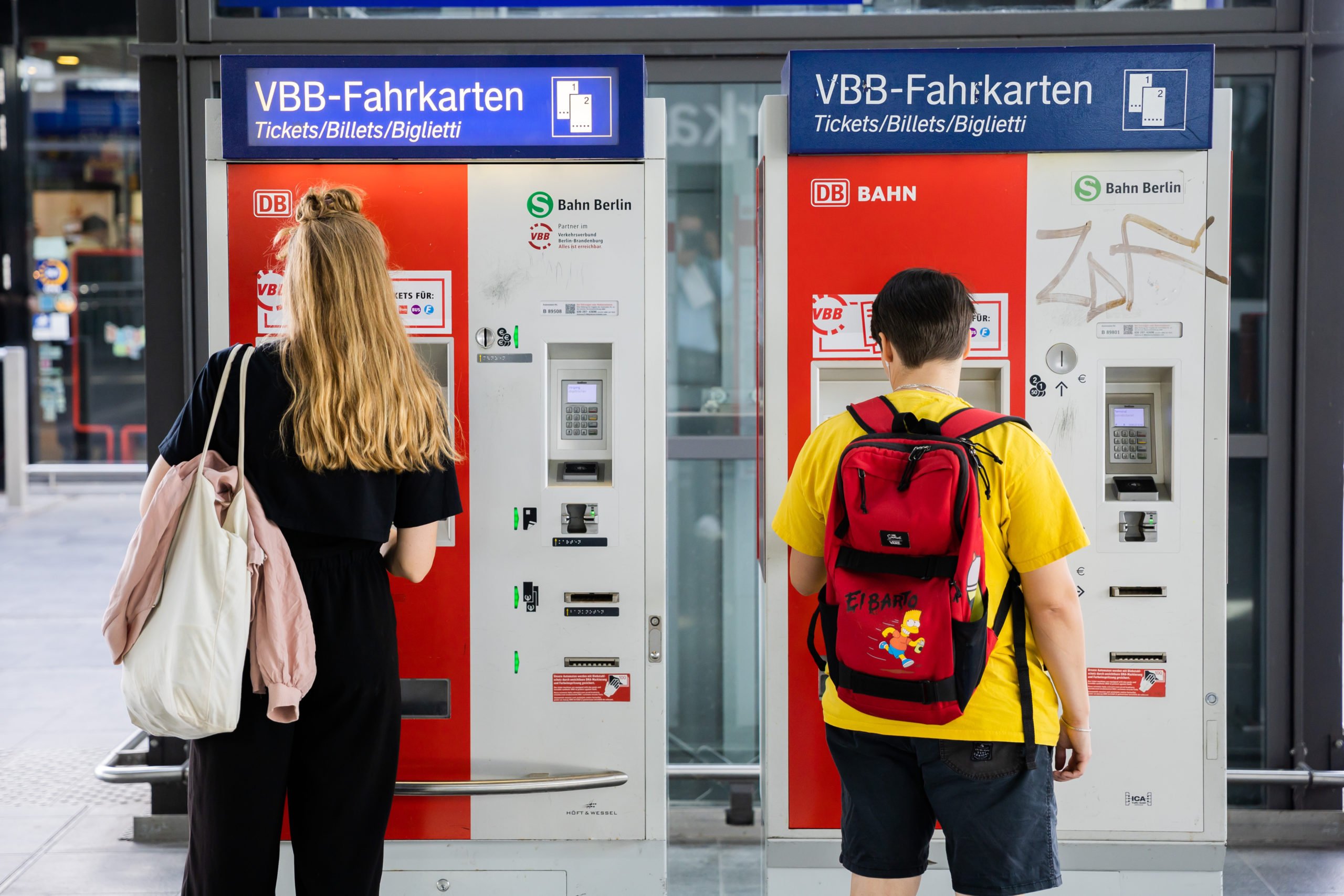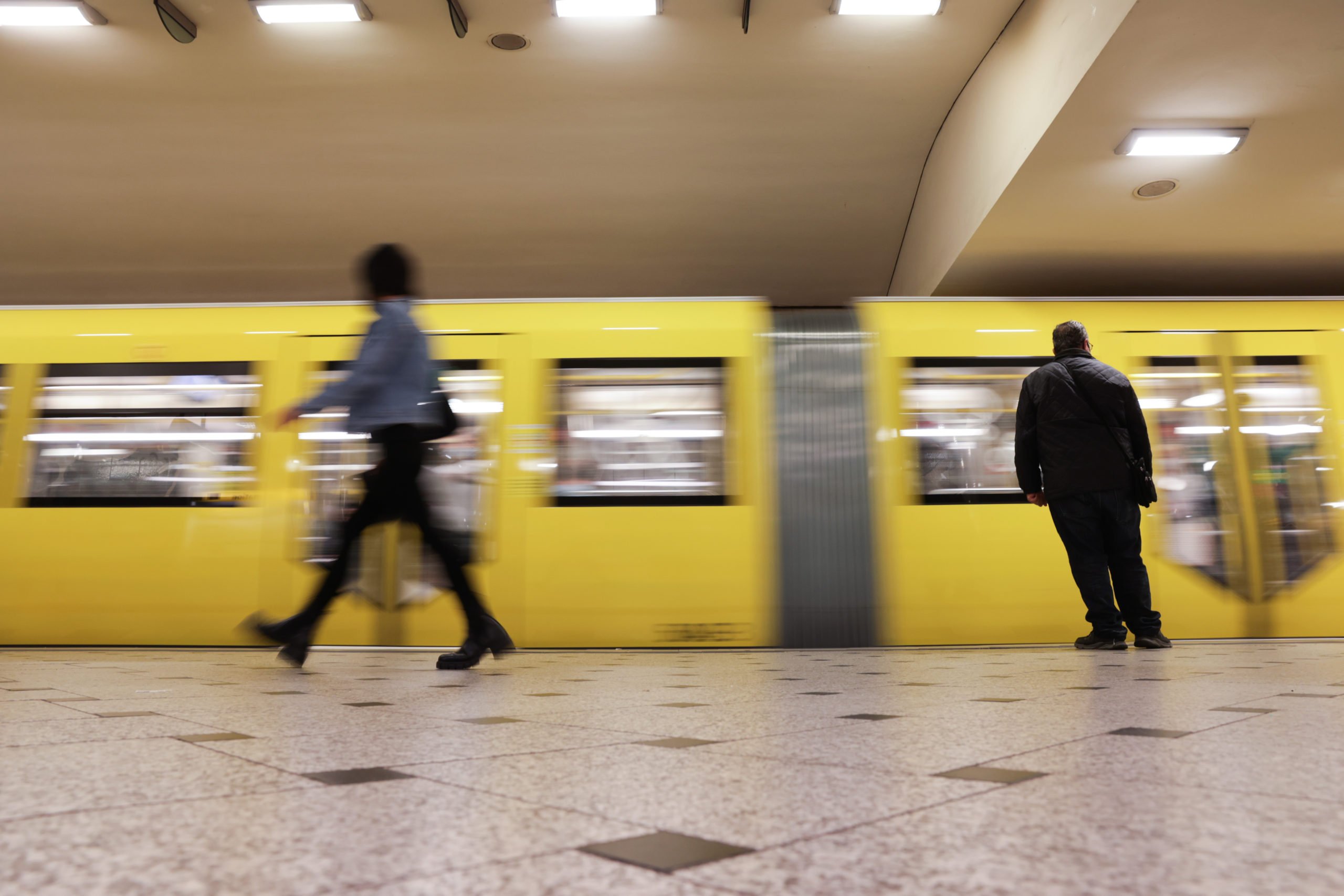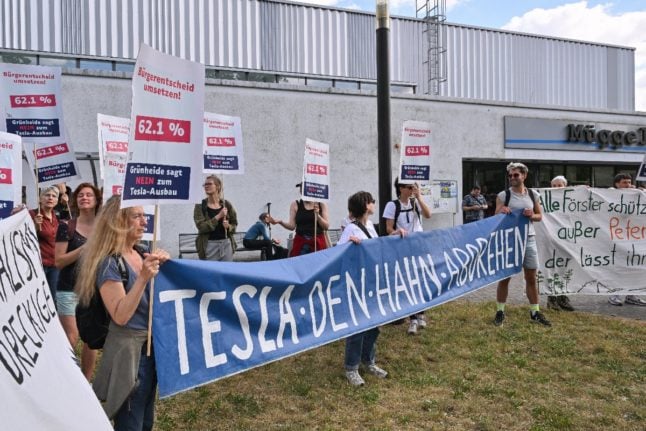Berlin’s state government confirmed last week that the €29 per month annual travel ticket was returning to the capital from July.
The city previously brought in a temporary €29 travel pass covering AB zones after the success of the €9 ticket back in the summer of 2022.
But the heavily-discounted ticket was shelved a year ago after the federal government brought in the €49 Deutschlandticket – covering all of Germany’s local public transport systems and regional trains.
READ ALSO: Berlin’s €29 travel pass given green light to start in July
Why is the Berlin’s ticket being rebooted?
The €29 ticket was a key election pledge by the Social Democrats in the 2023 repeat election.
Although they didn’t win the repeat vote, the party entered into a coalition with the conservative Christian Democrats (CDU) – and the SPD have been eager to push their transport initiative.
According to Economic Affairs senator Franziska Giffey (SPD), the offer is aimed at people who find the €49 pass too expensive and those who do not have a discounted company ticket.
The reduced ticket is also a contribution towards climate neutrality, which Berlin is aiming for before 2045.
It’s undeniably a great deal for people who live in Berlin and use the local transport regularly. But it’s not cheap for taxpayers.
As well as the subsidies for the nationwide Deutschlandticket which amount to around €135 million for Berlin, the state has set aside an annual sum of €300 million for the new Abo. And politicians think it could even be closer to €350 million.
READ ALSO: Is Berlin’s €29 ticket for public transport coming back?
When will the new ticket be available and when is it valid?
As the transport operator Berliner Verkehrsbetriebe (BVG) announced on its website, advance sales for the ticket, which will be called the ‘Berlin-Abo’, will start on April 23rd.
The ticket will then be valid for riding Berlin’s buses, trams, the underground, the S-Bahn, regional trains and ferries from July 1st.

How do I get it?
An important point is that the ticket will not be available from ticket machines. Instead, keen travellers will have to check out the online BVG subscription site or visit a BVG customer centre. BVG and S-Bahn offer the ticket both as a smartphone ticket and as a chip card.
The ticket is expected to remain in force until at least 2026.
How does the new ticket differ from the €49 ticket?
The €29 ticket is only valid for the AB fare zone in Berlin. So that covers the area inside the ring as well as the outer part – but not the furthest outer C zone which includes Potsdam and the BER airport. This means that travellers will need an add-on ticket to their Abo to get to the airport, for instance.
READ ALSO: Public transport use up in Germany ‘thanks to €49 ticket’
Those who have the €29 Berlin pass also won’t be able to travel on regional trains across the country and use local public transport in other places unless they have a valid ticket.
Another key difference is that the new Berlin-Abo has a minimum term of 12 months. After that, the subscription is automatically renewed and there’s a monthly notice period.
In contrast, the €49 ticket is valid for all public transport in Germany and can be cancelled on a monthly basis.
Both tickets allow holders to bring along a dog or children under the age of six free of charge – but not a bicycle.
Meanwhile there are no discounts available for the new €29 ticket. For example, there is no company ticket like the ‘Deutschlandticket Job’ for passengers whose employer partly finances the ticket.
How can I switch to the new ticket if I already have another travelcard?
BVG promises that it will be easy to switch to the new travelcard online. You can edit your own subscription in the BVG online travelcard area. The subscription can also be cancelled there. Alternatively, it is possible to switch to a new subscription at one of the BVG customer centres.

One thing to keep in mind is that the introduction of the €49 ticket was an organisational nightmare that resulted in a rush of consumer complaints. If you’re changing subscriptions, make sure to do it in plenty time, and to keep a note of what you do in case there’s an issue down the line. And if you’re going to a customer centre – be prepared for queues.
The Berlin-Abo has to be ordered by the 10th of the month so that it can be used from the 1st the following month. So for July, get the Abo ordered or switched by June 10th.
Who should get it? Is it available to tourists?
Anyone can sign up for it – but because there is a minimum term of 12 months, it won’t suit people visiting Berlin for a short period.
In general, though, anyone who would normally buy an average of eight single tickets each month – or if they have a more expensive subscription – will benefit from this ticket.
If you’re travelling regularly outside of Berlin using other local transport, you might prefer to stick with the €49 ticket.
Why is the ticket controversial?
For people living in Berlin, the new €29 ticket will be a welcome addition and will save people a lot of cash.
But some politicians are not happy – including within the German government.
Last week, the Transport Ministry called it a “regional rival product” and said the €29 ticket counteracted the aim of the €49 ticket “to radically simplify complex fare systems and streamline structures in the transport associations”.
The Berlin passenger association IGEB takes a similar view. Its spokesman Jens Wieseke told regional broadcaster Rbb that the new ticket would create an “isolated solution”.
“Affordable offers are good. However, new tickets should always be based on the Deutschlandticket,” said Wieseke.
The cost of the new ticket has also been slammed, especially by Bavaria.
Bavarian transport minister Christian Bernreiter (CSU) told the Tagesspiegel that Berlin, as the main recipient of Germany’s state financial equalisation scheme, “basically uses Bavarian money to finance an overall discount for all passengers”. This would ultimately be at the expense of the Deutschlandticket, he said.




 Please whitelist us to continue reading.
Please whitelist us to continue reading.
Member comments